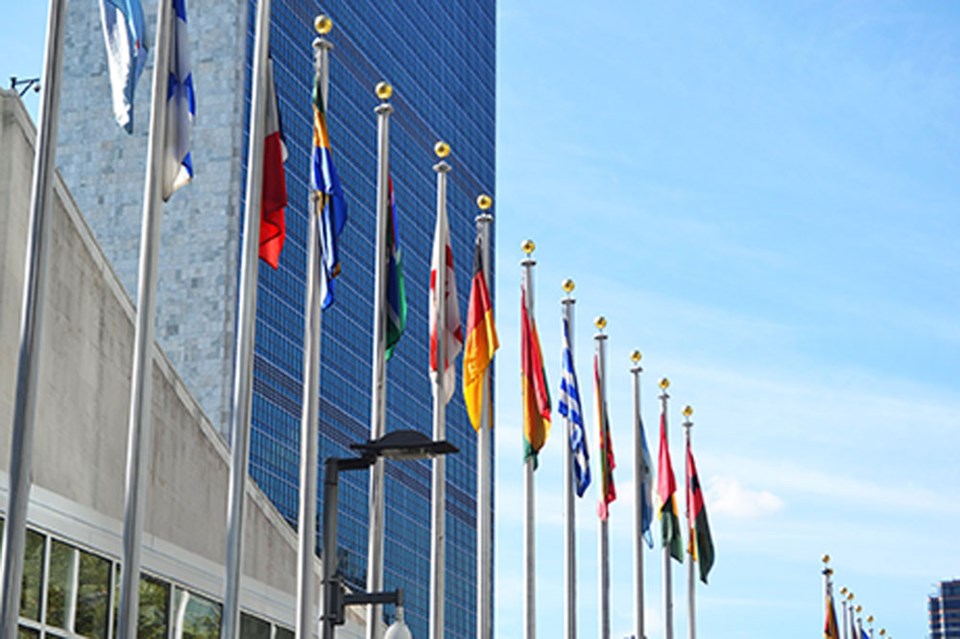Editor’s note: This piece is published with the permission of the Residential School History and Dialogue Centre. It first appeared on their website last month.
Indigenous consent is increasingly part of public discourse, particularly around resource development.
The provincial government introduced legislation in October to implement the United Nations Declaration on the Rights of Indigenous Peoples in British Columbia. Within the UN Declaration, one finds numerous references to obtaining the free, prior, and informed consent of Indigenous peoples.
Public discourse about the UN Declaration and Indigenous consent typically includes the repetition of a number of myths. Often these myths are left unchallenged with many, including some political leaders and commentators, simply taking them for granted. It is timely and important to confront some of these myths.
Myth #1 – Indigenous consent is not part of Canadian law.
The fact is that Indigenous consent is part of Canadian law. It is discussed in various ways in decisions of the Supreme Court of Canada including Haida and Tsilhqot’in. Moreso, it is actually an original, core, foundational principle of the common-law understanding of Indigenous-Crown relations. Former Chief Justice Beverly McLachlin explained in a speech that in Canada’s history the English acknowledged the “limited prior entitlement of indigenous peoples, which required the Crown to treat with them and obtain their consent before their lands could be occupied. In Canada…this doctrine was cast in legal terms by the Royal Proclamation of 1763, which forbade settlement unless the Crown had first established treaties with the occupants.”
Myth #2 – The UN Declaration creates new rights, including Indigenous consent.
The UN Declaration does not create new rights. What the UN Declaration does is affirm and express long-established human rights norms in the context of Indigenous peoples.
These are human rights norms that are reflected in the Universal Declaration of Human Rights, and which Canada and Canadians have supported and advocated for over generations. These are the same norms that have influenced progressive human rights regimes across the globe, including our Charter.
Myth #3 – Consent is a veto over resource development.
Consent and veto are not the same things, and consent is not a veto over resource development. First, no rights are absolute.
This is true in our Charter, section 35 of our Constitution, and in the UN Declaration. Article 46(2) of the UN Declaration makes this explicit in stating how the exercise of rights, including consent, may be limited: “The exercise of the rights outlined in this Declaration shall be subject only to such limitations as are determined by law and in accordance with international human rights obligations. Any such limitations shall be non-discriminatory and strictly necessary solely for the purpose of securing due recognition and respect for the rights and freedoms of others and for meeting the just and most compelling requirements of a democratic society.” Second, countless officials, as well as leading experts, have explained in detail and with clarity how ‘consent’ and ‘veto’ are different.
For example, James Anaya, the former Special Rapporteur on the Rights of Indigenous peoples, has explained that the free, prior, and informed consent standard is meant to ensure that all parties work together in good faith and make every effort to achieve mutually acceptable arrangements, and that a focus should be on building consensus. This is quite different than a ‘veto’.
Myth #4 – Consent will lead to uncertainty.
This is perhaps the greatest myth of them all. To assert this myth ignores the massive, and increasing, uncertainty about resource development that British Columbians are confronted with every day. To the degree such uncertainty is a product of relations with Indigenous peoples, the challenge has not arisen from respecting Indigenous rights – including consent – but from denying and ignoring them. The lack of recognition and implementation of Indigenous title and rights – and demanding that they be ‘proved’ in court despite them already being affirmed as existing in section 35 of the Constitution – has resulted in a culture of conflict, with over-reliance on long and expensive court processes, that rarely results in clear outcomes. In such, climate partnerships are hard to forge, the rules are unclear, and the pathways one has to follow murky. Former Minister of Justice and Attorney-General of Canada Jody Wilson-Raybould made this clear in a talk to the Business Council of BC in 2018 where she explained that “the uncertainty that we all experience today — Indigenous peoples, Industry, governments and the Crown — whether…in relation to pipelines or any of a number of projects, has its roots directly in this history of denial and division” and further went on to explain how consent can be a path to certainty.
Undoubtedly the issue of Indigenous consent, and how to implement the UN Declaration, are complicated public policy issues, that have a historical and contemporary context that is often quite challenging to capture in the soundbite and tweet culture of today’s social and political discourses.
This does not mean, however, that we should accept myths overruling facts, or allow misunderstandings to be treated as valid information. As these matters continue to be topics of focus in British Columbia, the better path, always, will be to seek out the best, and most informed, understandings possible.
Dr. Roshan Danesh has advised First Nations, the federal government, the British Columbia government, local governments, and industry on reconciliation.




